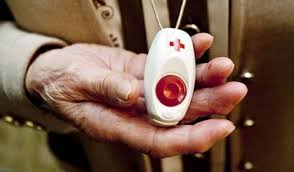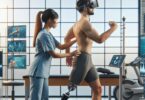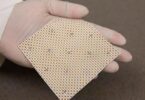Technological progress makes it possible to apply it to the care of the elderly and dependent people.
Technology applied to care is a booming field that is being extended and refined with one objective: to increase the user’s permanence at home with quality care, a desire expressed by more than 90% of Spaniards, according to the study The future of care prepared by Sondea for Clece in 2021.
The same report indicates a growing confidence in the help that technology can provide: two out of three Spaniards say that it will play a decisive role in improving their quality of life as they age.
The use of technology at home: there are sensor systems that monitor the user’s movements and routines and make it possible to detect and alert irregular situations, such as the stroke itself or a fall. Other devices enable virtual walks along beaches, mountains or somewhere in childhood, a way to cognitively stimulate older people who live in residences. And there are computer programs that coordinate home help to the millimeter, one of the most widespread benefits in the dependency system in Spain.
According to Braulio Hernández, director of R+D+i at Clece; He explains that these technologies already exist and are diverse: “The real challenge lies in adapting and adopting them, both by users and by workers in the dependency system.” Most of the services in this system are managed indirectly, with companies that compete in a public tender to be awarded their services. Hernández highlights the importance of companies and administration “cultivating effective and efficient collaboration so that this adoption is more agile and real, in addition to having adequate financing.”
Sensorization: Detect anomalies and avoid accidents
With a map of the user’s movements around his home and a table with the time spent in each room, a pattern of behavior that is very faithful to reality can be drawn up. This scheme of daily life is made from the information collected by various sensors installed in the house over the course of a month and which record the movements of that person, the opening and closing of doors and windows or the consumption of light and water. As soon as an anomaly in the usual pattern is detected, for example, excessive and unusual time in the bathroom, an alert is generated that reaches family members and social services. Behind these irregularities there can be different risk situations in which time is crucial: falls, cardiovascular accidents.
Apart from detecting fait accompli, the challenge is to achieve the predictive capacity of this information, details Braulio Hernández, from Clece: “Based on the analysis of normal behaviors and erratic behaviors, artificial intelligence could predict a fall or other kind of mishap and act accordingly to prevent it”. For privacy reasons, the information collected, the expert specifies, is never of an audiovisual nature. Family members also have access to this analysis at all times through an application.
Virtual assistance and accessible communication
(Accompany from a distance)
In cities like Valladolid, some beneficiaries of home help provided by Clece are testing Alexa and other virtual assistants as a complement to face-to-face support. The function of these chatbots is to guarantee that the user can communicate at all times, with just a voice command, with the head office or social services to answer questions, alert them to any problem or simply find company on the other side of the screen. “In addition to the playful part, such as playing songs or the radio, consulting any information or watching movies and videos,” adds Hernández. Alexa also fulfills a security function: the user can receive a verification video call from the assistant before they arrive at their home to avoid identity theft.
Another widely used tool is accessible video conferencing, a system that improved communication between residents and their families during the pandemic. Here the innovation consists of enabling a set of calls with a television and an easy-to-use remote control, with buttons for the basic functions understandable by older users. This system, which is also used for medical video consultations, guarantees the privacy of the speaker, since it is not necessary for an assistant to be present to establish the call.
If you need assistance at home to care for the elderly and/or dependents, do not hesitate to use any of these tools.









